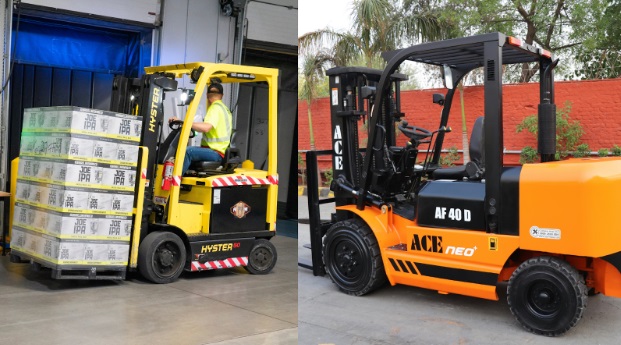
When it comes to streamlining operations in a warehouse, construction site, or distribution center, choosing the right forklift is a crucial decision.
A forklift is more than just a piece of machinery, it’s an investment in your business’s efficiency, productivity, and safety. With the wide range of models, capacities, and features available, selecting the ideal forklift can be a bit overwhelming. In this post, we’ll walk you through the key factors to consider when choosing new forklifts for sale for your business.
Understand Your Operational Needs
The first step in choosing the right forklift is to analyze your business’s specific needs. Ask yourself:
- What types of materials will the forklift handle?
- How heavy are the typical loads?
- How high do you need to lift materials?
- How often will the forklift be used?
- What is the layout of your work environment?
For example, if you’re operating indoors on smooth floors, an electric forklift might be ideal. For outdoor operations over rough terrain, an internal combustion (IC) forklift with pneumatic tires may be a better fit.
Consider Load Capacity
Forklifts come with various load capacities, typically ranging from 3,000 lbs to over 50,000 lbs. Choosing a forklift with too little capacity can lead to safety hazards and equipment damage, while one with too much capacity may be unnecessarily expensive and bulky.
Always select a forklift with a load capacity that meets or slightly exceeds your typical maximum load. Be sure to consider the size and shape of the loads, as non-standard loads may affect the forklift’s center of gravity and stability.
Choose the Right Power Source
Forklifts are powered either by electricity or internal combustion engines. Here’s a quick comparison:
- Electric Forklifts: Quiet, environmentally friendly, and low maintenance. Ideal for indoor use where air quality and noise are concerns.
- IC Forklifts (diesel, LPG, or gasoline): Better suited for outdoor use and heavy-duty applications. They offer more power and are generally easier to refuel quickly.
The choice depends largely on your work environment and sustainability goals.
Assess Maneuverability and Size
If your workspace has narrow aisles or tight corners, the size and turning radius of your forklift are vital considerations. Compact forklifts or models designed specifically for narrow aisles (like reach trucks or order pickers) can improve productivity in tight spaces.
Measure your aisle widths, doorways, and ceiling heights to ensure the forklift can operate freely in your facility.
Evaluate Safety Features and Ergonomics
Worker safety is non-negotiable. Modern forklifts come equipped with a range of safety features, such as:
- Load backrests
- Seat belts and operator presence sensors
- Backup alarms and lights
- Stability control systems
Ergonomics also matter—comfortable seating, easy-to-use controls, and clear visibility can reduce operator fatigue and increase productivity.
Factor in Total Cost of Ownership
The purchase price is just one part of the equation. You should also consider:
- Maintenance and repair costs
- Fuel or electricity costs
- Parts availability
- Resale value
- Warranty and service agreements
Sometimes, a slightly more expensive forklift with lower operating costs and a longer service life may be the better investment.
Choose a Reputable Dealer
Partnering with a trustworthy dealer can make a significant difference. A good dealer will:
- Help assess your needs
- Offer a range of brands and models
- Provide training and after-sales support
- Handle maintenance and parts availability
Check online reviews, ask for referrals, and compare service packages to find the best fit.
Final Thoughts
Choosing the right forklift involves balancing your operational needs, budget, and future growth. By taking the time to assess your work environment, load requirements, and long-term costs, you can select a forklift that enhances your efficiency, keeps your workers safe, and supports your business goals.
If you’re unsure where to start, consult with an experienced equipment specialist or dealer—they can guide you through the selection process and recommend models that align with your specific needs.



